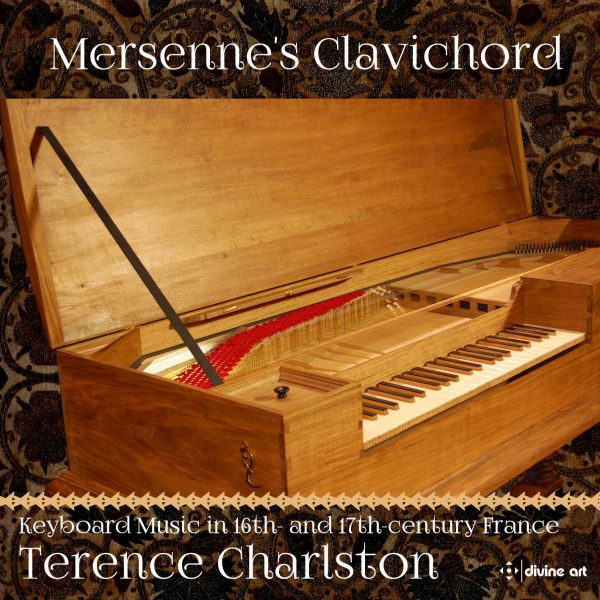Diapason
Curious about everything and armed with true freedom of thought, the elder Mersenne (1588-1648), a religious of the Minimes order, opened his mind to the most diverse subjects: theology, astronomy, mathematics , physics, music, organology, acoustics. In 1658, in his Histoire de la roulette, Pascal wrote that he “had a particular talent for forming beautiful questions.”
Author of several theoretical works, including his famous Harmonie universelle (1636), Mersenne, consulted for the most part in his Parisian convent, did not practice any instrument but maintained close relations with a number of musicians: it is around mainly French or Franco-Flemish composers of the sixteenth and seventeenth centuries, that Charlston has built this program.
Written for harpsichord or organ, at a time when the choice of instrumental destination was less finicky than today, these pieces by Racquet, Chambonnières, Anglebert, Louis Couperin etc. are perfectly suited to the clavichord, far less frequented in France than in Germany. Recordings dedicated to the French repertoire on this instrument remain rare. In this, Charlston offers us something new. He plays a model by the British maker Peter Bavington, inspired by the precepts of Mersenne.
Its discreet and expressive sound requires, unlike the harpsichord, a gentle control of the depth of the fingerboard and the attack, which allows vibrato. Charlston completely masters the charm of this intimate tone, close to the lute. And his interpretation combines melancholy, spontaneity and elegance, according to the mood of the movements, with a quality of touch essential in such music. Something to delight lovers of historical instruments.
(translation from the French by Stephen Sutton)
@divineartrecordingsgroup
A First Inversion Company
Registered Office:
176-178 Pontefract Road, Cudworth, Barnsley S72 8BE
+44 1226 596703
Fort Worth, TX 76110
+1.682.233.4978





![🎧 Listen now to the @purcellsingers' first single from their upcoming album, #ASpotlessRose! ➡️ listn.fm/aspotlessrose [in bio]](https://scontent-dfw5-2.cdninstagram.com/v/t51.71878-15/642752592_1424641949105789_8815810652567824072_n.jpg?stp=dst-jpg_e35_tt6&_nc_cat=106&ccb=7-5&_nc_sid=18de74&efg=eyJlZmdfdGFnIjoiQ0xJUFMuYmVzdF9pbWFnZV91cmxnZW4uQzMifQ%3D%3D&_nc_ohc=aY1NGfNpOoYQ7kNvwE-kZ-U&_nc_oc=AdnR0bvVBywiQnB_shYAVn6-fHKnWHCuJBmjF6V69TG6XDh2dew59ZVT_NIW8N6RZY8&_nc_zt=23&_nc_ht=scontent-dfw5-2.cdninstagram.com&edm=ANo9K5cEAAAA&_nc_gid=19atAykYF4LgD8yQBIDr2w&_nc_tpa=Q5bMBQFXMVTSTTeW7PnLZFQl-mdBEG9HXdh9J_6tFIAqtRyQLeElWS7Iw1BTPD_q_dVbNAyJGuEG9HvjTw&oh=00_Afzm33J5b1mCf-xBW4tNwYbbp4vfim-ec-iOOWBwuPaYuA&oe=69AF4501)






